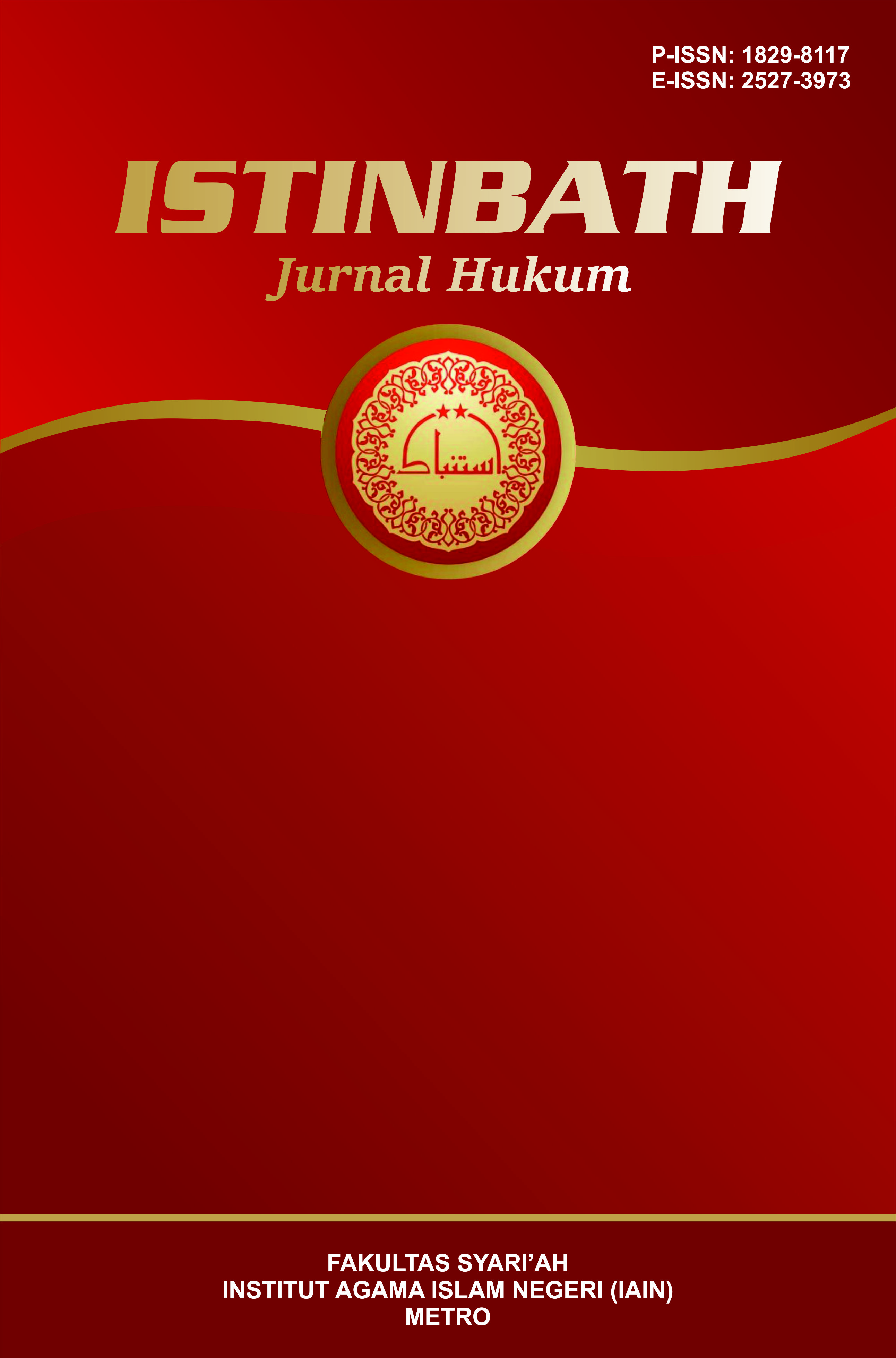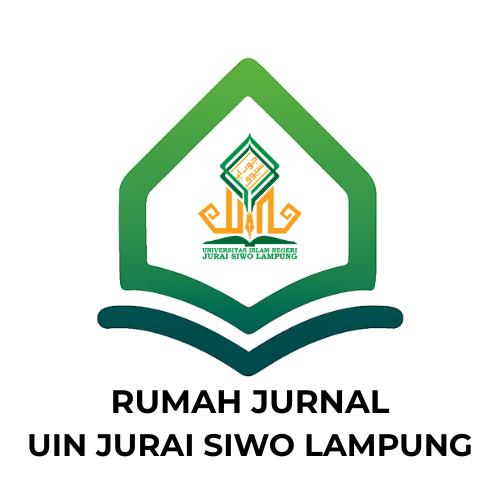Implementation of E-Court and Its Impact on Justice Seekers in the Legal Process at the Religious Court
DOI:
https://doi.org/10.32332/istinbath.v21i01.9668Keywords:
E-Court, Proceedings, Religious CourtAbstract
This research aims to find out how the implementation of e-Court according to the Supreme Court Regulations which provides a new breakthrough in the procedural process through electronic mechanisms at the Class IAMetro Religious Courts in particular and its impact on justice seekers in the procedural process. Bearing in mind that justice seekers tend to experience difficulties in carrying out activities in court during the proceedings, where justice seekers must come to the court first. This will take time and money to implement, of course it will also make services less efficient and effective in case registration and trial processes. The most important essence is in resolving cases electronically where the Religious Courts are one of the authorities that handles cases at the first level. This is the embodiment and realization of the hope of the existence of this system for the justice seeking community which can provide benefits which are made easier so that the process of proceedings can be carried out smoothly. effective and efficient. The method used in this research is qualitative and is described using primary data sources and secondary data sources. Primary data sources are from Legal Aid Posts, Case Managers/PTSP, Secretaries, Registrars, Judges and Justice Seekers at Class I A Metro Religious Courts who are informants. Apart from collecting interview results and documentation, this research was also carried out by carrying out structured data processing using inductive thinking methods.
References
Amran Suadi, Civil Procedure Law Reform in Indonesia: Measuring Electronic Court Proceedings", Jakarta: Kencana, 2019
Asimah, Dewi. "ELECTRONIC LITIGATION AS A MEAN OF EFFORT TO MODERNIZE LITIGATION IN THE NEW NORMAL ERA." Peratun Law
Journal 4, no. 1 (March 26, 2022): 31–44.
https://doi.org/10.25216/peratun.412021.31-44
Astuti, Putri Widi, and Tri Prastio. "Post-Divorce Rights of Women and Children." MILRev: Metro Islamic Law Review 1, no. 2 (December 27, 2022): 203. https://doi.org/10.32332/milrev.v1i2.6209
Baiq Paridah, "Implementation and impact of e-court (Electronics Justice System) on Advocates in the Case Settlement Process at Serong District Court", JURIDICA: Journal of the Faculty of Law, Gunung Rinjani University, Vol 2, No 1, November 2020, https://jurnalnasional.ump.ac.id/index.php/umplr/article/download/16234/ 6606
Fahira, Meida Anggi, and Syawaludin Nur A. Fahmi. "Professional ethics of judges in court." MILRev: Metro Islamic Law Review 1, no. 2 (December 27, 2022): 176. https://doi.org/10.32332/milrev.v1i2.6207
Hamamah, Fatin "E-LITIGATION IN PURSUITING THE BASIS OF SIMPLE,
FAST AND LIGHT COST TRIAL." Court: Journal of Islamic Legal Studies 7, no. 2 (November 7, 2022): 236. https://doi.org/10.24235/mahkamah.v7i2.11652
Hamamah, Fatin. "E-LITIGATION IN REALIZING THE PRINCIPLES OF
SIMPLE, FAST AND LOW COST JUSTICE." Court: Journal of Islamic Law Studies 7, no. 2 (November 7, 2022): 236.
https://doi.org/10.24235/mahkamah.v7i2.11652.
Kurnia, Muchammad Razzy, and Syahrul Adam. "E-COURT IMPLEMENTATION AND ITS IMPACT ON THE DISPUTE SETTLEMENT IN THE
AGENCY COURT OF JAKARTA PUSAT", Fajar: Communication and Information Media for Community Service vol,. 21, no. 2, https://journal.uinjkt.ac.id/index.php/fajar/article/viewFile/22335/pdf (2021).
Supreme Court of the Republic of Indonesia "Regulation of the Supreme Court of the Republic of Indonesia Number 7 of 2022 Concerning Amendments to Supreme Court Regulation Number 1 of 2019 Regarding Electronic Case and Court Administration"
Supreme Court of the Republic of Indonesia, "Regulation of the Supreme Court of the Republic of Indonesia Number I Year 2019 on Electronic Case and Trial Administration"
Maulana, et al. "OPTIMALIZING THE E-COURT SYSTEM IN THE MADIUN AGENCY: STRATEGIES AND CHALLENGES," INSURI PONOROGO,
https://prosiding.insuriponorogo.ac.id/index.php/aicoms/article/download/142/43/374
, 2022.
Nuraeni, et al. "IMPLEMENTATION AND IMPACT OF E LITIGATION IN THE PERSPECTIVE OF TORT LAW CONNECTED TO THE REGULATION OF THE SUPREME COURT OF THE AGENCY NUMBER 1 OF 2019."
Journal Presumption of Law 4, no. 2 (October 10, 2022): 141–55. https://doi.org/10.31949/jpl.v4i2.3280
Republic of Indonesia "Law Number 3 of 2006 Concerning Amendments to Law Number 7 of 1989 Concerning Religious Courts"
Retnaningsih et al, "E-COURT IMPLEMENTATION ACCORDING TO PERMA NUMBER 3 YEAR 2018 ON ADMINISTRATION OF CASES IN THE COURT ELECTRONICALLY AND E-LITIGATION ACCORDING TO PERMA NUMBER 1 YEAR 2019 ON ADMINISTRATION OF CASES AND TRIALS IN THE COURT ELECTRONICALLY (STUDY IN THE REGIONAL COURT IN INDONESIA)." Journal of Law & Development 50, no.1 (July 13, 2020): 124.
https://scholarhub.ui.ac.id/cgi/viewcontent.cgi?article=1144&context=jhp
Ridha Hakim, Implementation of E-Court in the Supreme Court Towards a Modern Judiciary, Jakarta: Kencana, 2019.
Soerjono Soekanto, Introduction to Legal Research, Jakarta: UI-Press, 2020 Suharsimin Arikunto, Research Management, Jakarta: PT Rineka Cipta, 2013
Sundusiyah and Hariyanto, "IMPLEMENTATION OF THE REGULATIONS OF THE MAHKAMAH AGUNG ABOUT E-COURT TO EMBODY THE BASIS OF SIMPLE, FAST AND LIGHT COST IN THE PAMEKASAN AGENCY COURT." Arena Hukum 15, no. 3 (December 27, 2022): 471–98. https://doi.org/10.21776/ub.arenahukum.2022.01503.2
Downloads
Published
Issue
Section
License
Copyright (c) 2024 Adella Rofi’ah, Nawa Angkasa

This work is licensed under a Creative Commons Attribution-ShareAlike 4.0 International License.













